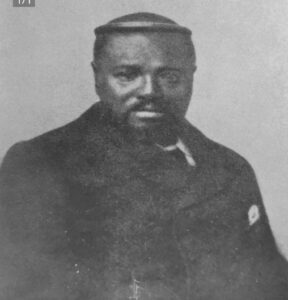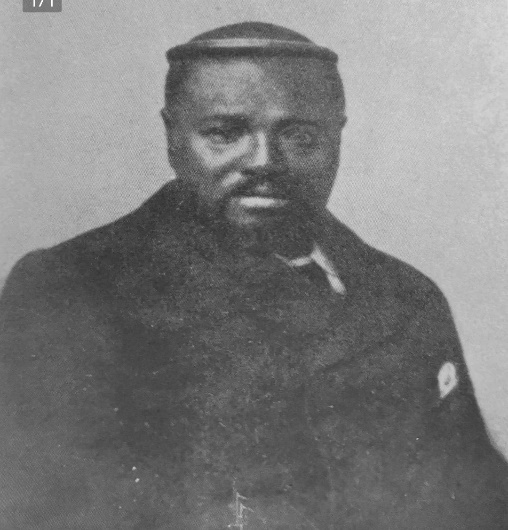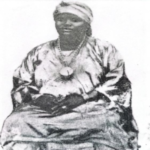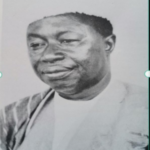
Cetshwayo (circa 1826-February 8, 1884) was the fourth Zulu king and the last independent ruler of Zululand. He reigned from 1873-1979. He was a strong military leader. Following his defeat by British forces in 1879 he was deposed, and although briefly reinstated, never regained his former power.
Cetshwayo was the eldest son of king Mpande (q.v.), was reign was relatively peaceful. Mpande, however, never designated a successor, and in 1856, during his reign, civil wars developed between factions led respectively by Cetshwayo and his half- brother, Mbulazi, Mbulazi was killed, and thereafter Cetshwayo became the ruler of Zululand in all but name. He succeeded to the kingship on the death of his father in 1872.
Cetshwayo’s main aim at this time was to prevent incursions into Zululand from the Transvaal Republic to the northwest. In pursuit of this aim, he sought an alliance with the British in Natal, and invited Theophilus Shepstone (q.v.), the Natal secretary for native affairs, to “crown” him officially in 1873, which he did. He also took as adviser John Dunn (q.v.), an Englishman from Natal, whom he made a Zulu chief. Meanwhile, Cetshwayo brought his Zulu forces to a state of preparedness, and suggested to Shepstone that the Zuls and Natal launch a joint invasion of the Transvaal. Instead, Shepstone annexed the Transvaal to the British crown in 1877, thereby undermining the basis of Cetshwayo’s foreign policy.
Shortly thereafter, Shepstone began to back the Transvaal’s claims against Zululand. In 1878 he sent an ultimatum to Cetshwayo, demanding that he disband the Zulu armies. He also asked the British governor of the Cape Province, Bartle Frere (q.v.) to invade Zululand. The purpose of the British invasion which followed, and which began the Anglo-Zulu war of 1879, was to undermine Cetshwayo’s authority, to destabilize the Zulus’ traditional institutions such as its military system and to render Zululand penetrable and exploitable by the Natal colonists, and to consolidate British influence and hegemony in southern Africa.

The British troops which entered Zululand under the command of Lord Chemsford were, however, overwhelmed by Cetshwayo’s Zulu regiments at the battle of IsandIwana Hill on January 22, 1879. The invasion united the Zulu people in support of Cetshwayo and did not fragment the kingdom as had been hoped. The defeat of the British at IsandIwana helped to revive the mystique of Zulu civilization for a short while.
The triumph of the Zulu armies was, however, short-lived. While at IsandIwana they had for the most part fought only with spears against the British rifles, elsewhere their success was not to be repeated. The Zulus were defeated with heavy losses at Rorke’s Drift, at Khambula, and in other encounters. After the Zulu forces were defeated at Ulundi, Cetshwayo’s capital, on July 4, 1879, Cetshwayo himself was arrested and deported to Cape Town. Zululand was then divided into independent chieftainships.
In 1882, Cetshwayo was released, and permitted to visit London, where he made a favorable impression on British officials as well as Queen Victoria. He was then allowed to return to his much truncated kingdom in central Zululand in 1883. The division of Zululand, however, inevitably led to civil war. Rival factions, including two led by Cetshwayo’s half-brothers, Zibhebhu and Hamu, and others refused to recognize his authority, and his capital of Ulundi was razed to the ground. He himself barely escaped, and shortly afterwards surrendered to the British resident commissioner for Zululand at Eshowe, a broken and dispirited man. He died suddenly on February 8, 1884.
His short official reign (1873- 1979, and 1883-1984) and witnessed the dismemberment. His successor was his 15-year-old son, Dinuzulu (q.v.).


